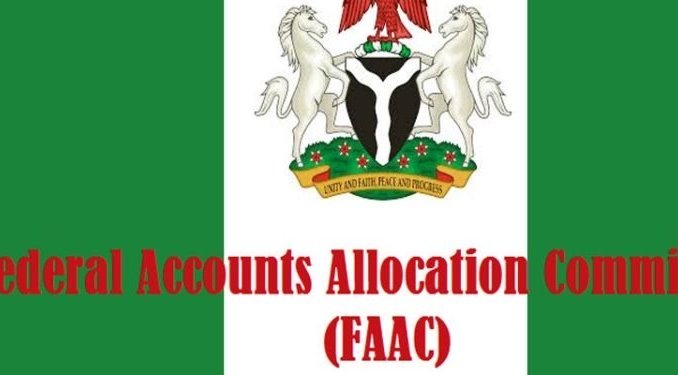Rising level of public debt, debt service and fuel subsidy is affecting the revenue generation of the Federal Government, the Federation Account Allocation Committee (FAAC) Post-Mortem Sub-Committee has revealed.
The Post-Mortem Sub-Committee called for the removal of the subsidy on petrol despite admitting that it will affect low-income households, raising their cost of living through inflation.
READ ALSO: FG gets lion share as FAAC releases federation allocation for February
Following a three-day retreat, the committee noted in a communique released that, “The rising level of public debt and the increasing ratio of debt service to revenue is worrisome.”
Following a three-day retreat, the committee noted in a communique released that, “The rising level of public debt and the increasing ratio of debt service to revenue is worrisome.”
It stated that the fuel subsidy is unsustainable, stating “the downstream operations of the petroleum industry should be fully deregulated to provide for the removal of subsidy.”
After assessing the issues faced by the federation account from January 2019 to September 2022, they opined that, “Nigeria cannot continue to sustain the provision of subsidy on PMS because of the negative impact it has on the nation’s revenue. Accordingly, subsidy on PMS should be phased out.
“Revenue proceeds accruing from subsidy removal should be used for the benefit of the entire population and should be put to projects having direct impact on the citizens such as Education, Healthcare, Skill acquisition, etc.”
Nigeria had expended N1.33triillion in first half (H1) of 2022 to service domestic debt, in contrast to the N935.46billion debt service gulped in H1 2021, rising 43 per cent Year-on-Year. Between January and April, FG spent N334.24 servicing foreign debt.
In 2021, N2.05trillion was used to service domestic debt in 2021, rising from N1.85trilllion reported in 2020, and foreign debt accounted for N946.29 billion in debt service. The total debt service gulped N4.22tn on debt service.
READ ALSO: Monthly allocation drops as FAAC disburses N604bn
The rise in debt service is driven by continuous borrowing of the government, with Nigeria’s total public debt hitting N42.84 trillion ($103.31 billion) at the end of second quarter of 2022, according to the National Bureau of Statistics (NBS).
This means the country’s debt rose by N7.38 trillion from end of Q2 2021, when the total debt stock was N35.46 trillion (86.57 billion dollars). This is a 20.81 per cent year-on-year growth.
Nigeria is currently borrowing to pay debt, and not grow the economy, and the World Bank had expressed concerns, stating debt service-to-revenue ratio could hit 102.3 per cent by the end of this year.
The World Bank’s projection is not far-fetched, considering Nigeria recorded a high debt service-to-revenue ratio of 118.9 per cent between January and April.

 Health6 days ago
Health6 days ago
 Entertainment1 week ago
Entertainment1 week ago
 Crime6 days ago
Crime6 days ago
 Education1 week ago
Education1 week ago
 Health1 week ago
Health1 week ago
 Comments and Issues7 days ago
Comments and Issues7 days ago
 Football1 week ago
Football1 week ago
 Latest7 days ago
Latest7 days ago

